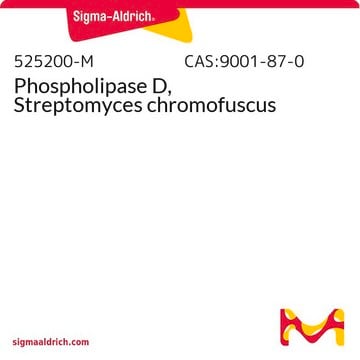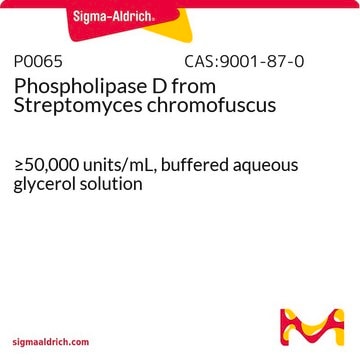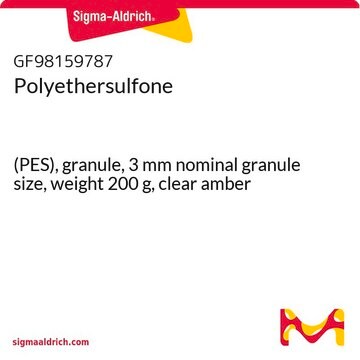555169
Poly[(m-phenylenevinylene)-co-(2,5-dioctoxy-p-phenylenevinylene)]
light-emitting polymer, predominantly trans
Synonym(s):
Poly(m -phenylenevinylene-co -2,5-dioctoxy-p -phenylenevinylene)
Sign Into View Organizational & Contract Pricing
All Photos(1)
About This Item
Recommended Products
Quality Level
solubility
chloroform: soluble 2 wt. %
λmax
402 nm
fluorescence
λex 405 nm; λem 452 nm in chloroform
SMILES string
O(CCCCCCCC)c1c(cc(cc1)OCCCCCCCC)\C=C\c2cc(ccc2)C=C
InChI
1S/C32H46O2/c1-4-7-9-11-13-15-24-33-31-22-23-32(34-25-16-14-12-10-8-5-2)30(27-31)21-20-29-19-17-18-28(6-3)26-29/h6,17-23,26-27H,3-5,7-16,24-25H2,1-2H3/b21-20+
General description
Poly[(m-phenylenevinylene)-co-(2,5-dioctoxy-p-phenylenevinylene)](PmPV) is a conjugated luminescent polymer with meta linked phenylene ring within the backbone. It has a good non-linear optical response and a high degree of crystallinity.
Semi-conjugated, light-emitting polymer.
Application
PmPV in combination with carbon nanotubes (CNTs), graphene and fullerene forms stable nanocomposites with enhanced electrical and mechanical properties. These composites can potentially be used as semiconducting materials for a variety of electronic applications.
Used in the purification of carbon nanotubes.
Storage Class Code
11 - Combustible Solids
WGK
WGK 3
Flash Point(F)
Not applicable
Flash Point(C)
Not applicable
Personal Protective Equipment
dust mask type N95 (US), Eyeshields, Gloves
Choose from one of the most recent versions:
Already Own This Product?
Find documentation for the products that you have recently purchased in the Document Library.
Amphiphilic poly (p-phenylene)-driven multiscale assembly of fullerenes to nanowhiskers
Nurmawati MH, et al.
ACS Nano, 2(7), 1429-1436 (2008)
ZUSCHRIFTEN-Preparation and Properties of Polymer-Wrapped Single-Walled Carbon Nanotubes
Star A, et al.
Angewandte Chemie (International Edition in English), 113(9), 1771-1774 (2001)
Direct Observation of the Ordering and Molecular Folding of Poly [(m-phenylenevinylene)-co-(2, 5-dioctoxy-p-phenylenevinylene)]
Lei SB, et al.
Advanced Materials, 16(9-10), 828-831 (2004)
A composite from poly (m-phenylenevinylene-co-2, 5-dioctoxy-p-phenylenevinylene) and carbon nanotubes: A novel material for molecular optoelectronics
Curran SA, et al.
Advanced Materials, 10(14), 1091-1093 (1998)
Chemically derived, ultrasmooth graphene nanoribbon semiconductors
Li X, et al.
Science, 319(5867), 1229-1232 (2008)
Our team of scientists has experience in all areas of research including Life Science, Material Science, Chemical Synthesis, Chromatography, Analytical and many others.
Contact Technical Service


![Poly[2-methoxy-5-(2-ethylhexyloxy)-1,4-phenylenevinylene] average Mn 40,000-70,000](/deepweb/assets/sigmaaldrich/product/structures/344/488/b8f8179d-3970-4deb-a754-adda88cdb36f/640/b8f8179d-3970-4deb-a754-adda88cdb36f.png)




